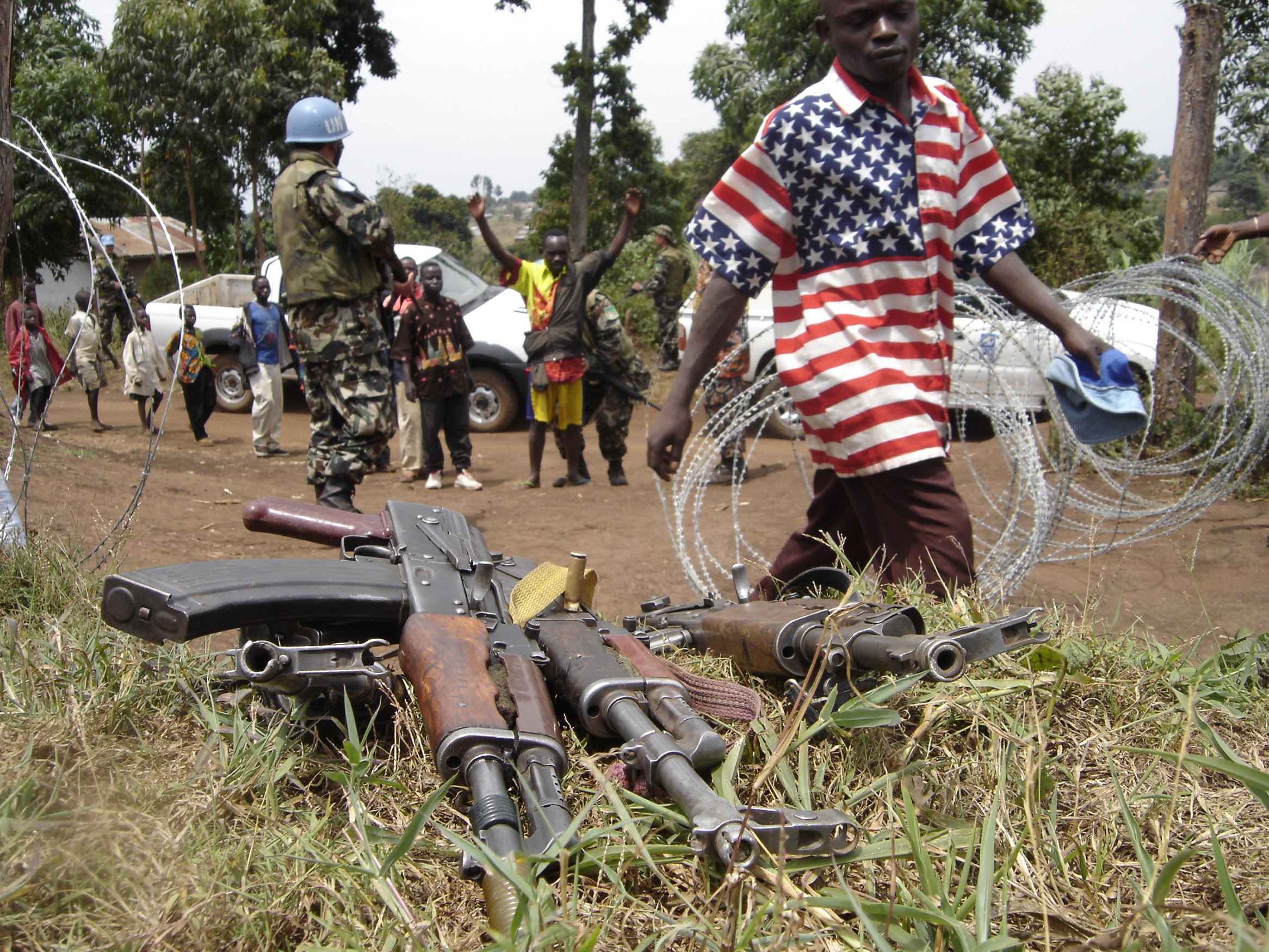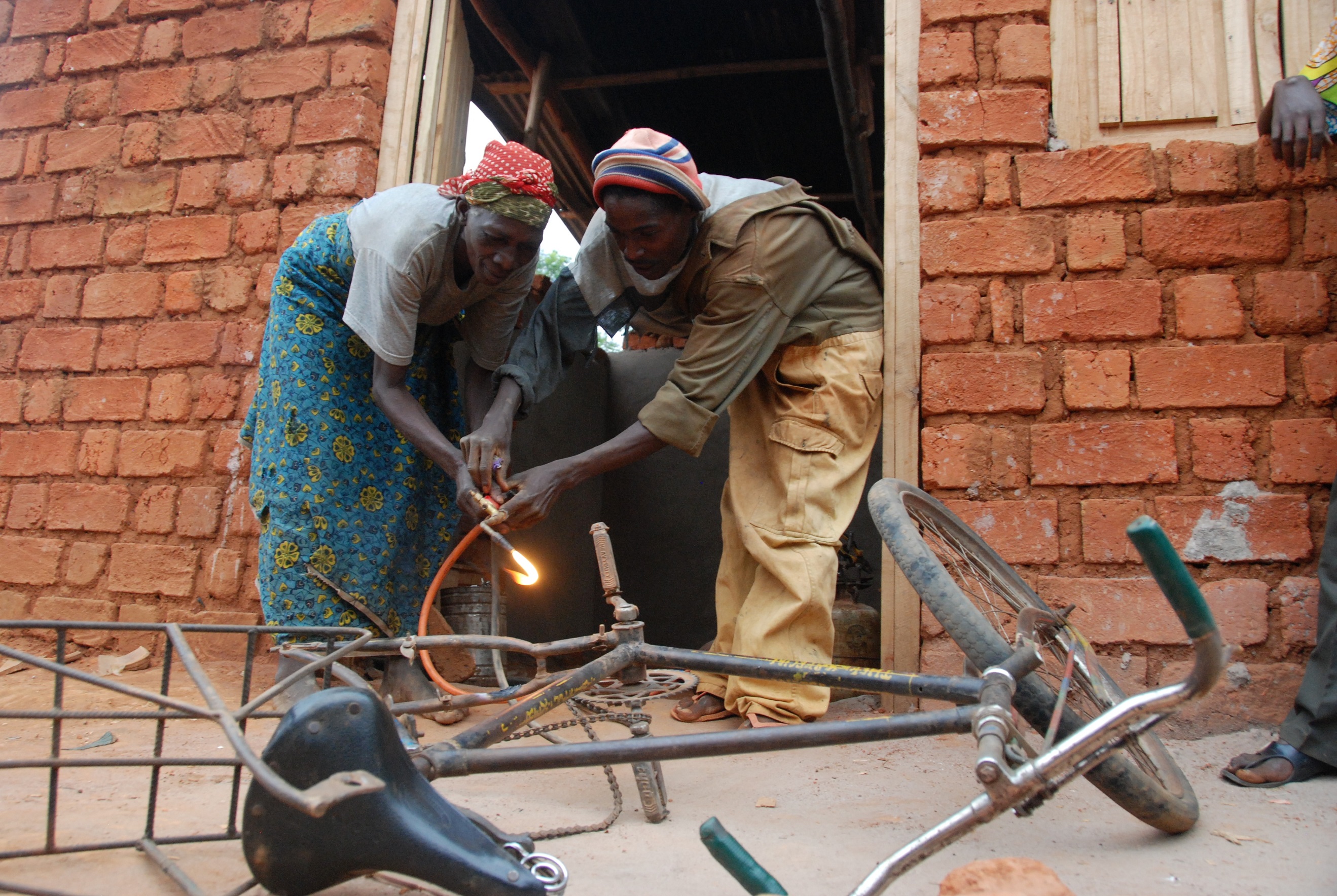Preparing former fighters for life after war is key to peace
June 3, 2024

Collected weapons are stocked and secured in eastern Democratic Republic of Congo.
In its famous first words, the United Nations Charter expresses the determination to “save succeeding generations from the scourge of war”.
Almost 80 years since the adoption of the Charter, the task of ending wars has substantially evolved.
Conflicts are more fragmented, with the number of armed groups mushrooming with or without political agenda and the added presence of terrorists and criminal networks. They have become more transnational, regional and cross-border, and are less responsive to traditional forms of resolution.
A Summit for the Future in September 2024 seeks to reaffirm the UN Charter and reinvigorate multilateralism, including on global peace and security. In the run-up to the Summit, the UN Secretary-General presented the New Agenda for Peace to inform negotiations on the architecture of peacebuilding. The role of disarmament, demobilization and reintegration (DDR) is an integral part.
Two billion people live in areas affected by conflict, from terrorism surges in the Sahel and hostilities in Gaza, Sudan and Ukraine to armed groups in the eastern Democratic Republic of the Congo and gangs ravaging Haiti. The UN recorded more than 33,000 civilian deaths in armed conflict last year – a horrific 72 percent increase compared with the previous year. The number of people forcibly displaced will pass 130 million this year – breaking more records.
Conflict-related sexual violence jumped 50 percent in 2023 with 3,888 UN-verified cases; women and girls accounted for 95 percent. People want peace, dignity and opportunities, yet they see around them division and violence. The presence of armed (mostly) men at the end of a war risks a resumption of violence in the same or different form.
Without livelihoods or community and family ties, former fighters are vulnerable to (re-)recruitment. About 40 percent of post-war countries return to civil war inside a decade, a phenomenon referred to as the “conflict trap”.

Former combatants work in new jobs in Burundi. Having access to livelihood opportunities can reduce the risk of former fighters being re-recruited.
One of the first steps in providing security, development, governance and services is ensuring that former fighters lay down their weapons, return to their homes and families and resume normal life as part of the community.
Ex-combatants, both men and women, need opportunities to make a living, to receive healthcare and send their children to school, to go to counselling and for communities to welcome them home and to contribute meaningfully to reconciliation processes at different levels. When trauma runs deep, community leadership and participation is a prerequisite for long-term stability, recovery and peace.
"Without livelihoods or community and family ties, former fighters are vulnerable to (re-)recruitment. About 40 percent of post-war countries return to civil war inside a decade, a phenomenon referred to as the 'conflict trap'."
The changing nature of conflict, the complexities of a multipolar world and the rethinking of peacekeeping missions has led to changes in how DDR is carried out.
The United Nations Inter-Agency Working Group on Disarmament, Demobilization and Reintegration published the revised Integrated Disarmament, Demobilization and Reintegration Standards in 2023. The Standards include guidance on policies, guidelines and procedures for DDR processes in both mission and non-mission contexts – and in both ongoing and post-conflict settings. The Standards are key as DDR practitioners seek to operationalize the New Agenda for Peace. It also addresses special needs of female combatants.
A Symposium on DDR takes place from 3 to 7 June in Geneva, bringing together UN agencies, regional institutions, national stakeholders and non-governmental organizations. The task for delegates is to build a common vision for the future of DDR. Reflecting on the New Agenda for Peace, practitioners will focus on priorities such as prevention, arms control, rethinking peace operations and expanding partnership networks, including with regional organizations.

Former combatants in Nepal engage in the discharge process, and women receive certificates for laying down their weapons in Colombia.
Women, Peace and Security (WPS) has been on the Security Council’s agenda since 2000, with a series of resolutions since then. However, there is still a lack of inclusion of women, girls and people with disabilities in peace processes. Out of 18 peace agreements in 2022, provisions for women and girls were only included in six. Women and girls must have a say in their future.
The United Nations Development Programme (UNDP) and the UN Department of Peace Operations (DPO) are co-hosting the 2024 DDR Symposium, demonstrating their deepening collaboration across mission and non-mission settings. The practitioners are building on their respective areas of technical expertise and operational presence across fragile contexts. From providing support to sensitive political process in Libya, to psychosocial assistance in Somalia, to working on the reintegration of former volunteer fighters in Iraq, to providing livelihood and employment for former combatants and communities in Central African Republic, Colombia and the Philippines, the practitioners are already trusted on delivering DDR.
The Symposium is a chance to ensure that DDR processes can meet current challenges and contribute to the New Agenda for Peace and the Summit of the Future.
Silencing the weapons, decommissioning the machinery of war, and supporting communities to build the future they want deserves the support of Member States.
As the UN Charter says, we must “unite our strength to maintain international peace and security”.

 Locations
Locations





